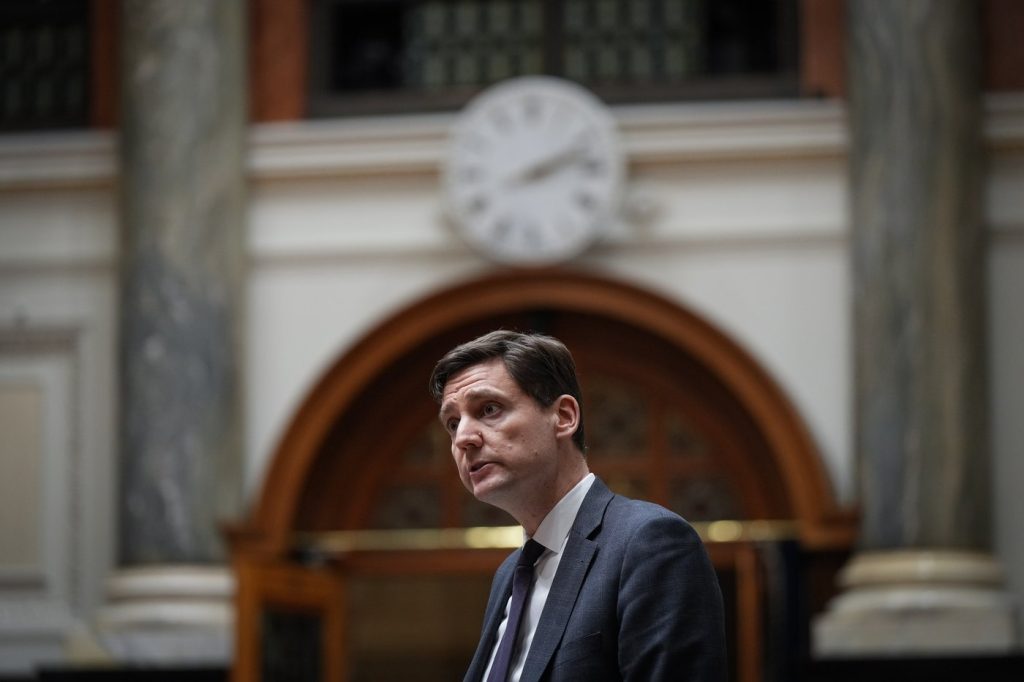British Columbia Premier David Eby has expressed strong opposition to the 25 per cent tariffs recently announced by the U.S. government, labeling them as a "complete betrayal" of the historic ties between Canada and the United States. Eby's remarks came during a press conference held in Vancouver on Saturday, where he described the tariffs, announced by U.S. President Donald Trump, as a "declaration of economic war" against Canada, a trusted ally.
The tariffs, set to take effect on Tuesday, also include a lower 10 per cent duty on energy, signaling the potential for an escalating trade war with Canada. In reaction to this escalation, Eby has initiated several immediate measures, including ordering the BC Liquor Distribution Branch to cease purchasing American liquor from "red states" and to remove existing American liquor stock from store shelves. Furthermore, Eby directed crown corporations, such as BC Hydro and ICBC, to prioritize Canadian goods and services over American imports.
In addition to these measures, the provincial government is expediting permits for ten private-sector projects valued at $20 billion, encompassing sectors like mining, renewable energy, and natural gas. Eby estimates that this initiative could create around 6,000 jobs in northern and rural British Columbia.
During the press conference, Eby stated, "We will never again allow ourselves to be beholden to the whims of one person in the White House," highlighting his determination to strengthen provincial independence in trade matters. Eby also addressed Trump’s specific concerns regarding the smuggling of drugs, particularly fentanyl from British Columbia. He acknowledged the seriousness of the issue but emphasized that imposing tariffs as a solution is misguided and ineffective.
While showing understanding towards the U.S. president's apprehensions regarding fentanyl, Eby firmly stated that tariffs do not contribute to economic growth in the United States. According to a statement from the Office of the Premier, a substantial portion—approximately 67 per cent—of goods exported to the U.S. consists of wood, pulp and paper, metallic minerals, and energy products. Eby expressed particular concern for the lumber sector in British Columbia, which is already facing significant challenges due to previous softwood lumber duties.
The BC Council of Forest Industries responded to the tariff announcement, indicating that the forestry sector has been grappling with various challenges, including mill closures that have impacted thousands of jobs. They warned that the newly imposed tariffs on all forest product exports could lead to devastating consequences, including further job losses and adverse effects on communities reliant on the industry.
Despite these challenges, Eby pointed out that British Columbia has made significant strides in diversifying its economy to mitigate the risks associated with trade disputes. He acknowledged that even if tariffs were lifted in the future, the relationship between Canada and the U.S. would not revert to its former nature. Eby emphasized the ongoing need for British Columbia to deepen trading relationships and explore new market opportunities outside of the U.S. while asserting, "As British Columbians, and as Canadians, we will stand strong and united in the face of this unprecedented attack."
This report unfolds a multifaceted reaction from British Columbia’s leadership in light of stringent U.S. trade measures, reflecting a broader concern over the implications for local industries and the future of Canadian-American relations.










